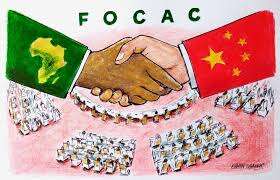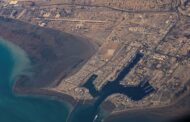The Forum on China-Africa Cooperation (FOCAC) has emerged as a pivotal platform for fostering economic and diplomatic ties between China and Africa. Since its inception, FOCAC has played a crucial role in supporting Africa’s development agenda, particularly in the areas of infrastructure and green energy.
FOCAC has been instrumental in facilitating significant investments in African infrastructure projects. From railways and highways to ports and airports, these projects have been vital in enhancing connectivity and boosting economic growth across the continent.
Notable examples include the Mombasa-Nairobi Standard Gauge Railway in Kenya and the Addis Ababa-Djibouti Railway in Ethiopia. These infrastructure projects have not only improved transportation efficiency but have also created jobs and stimulated economic activity in the regions they serve.
In recent years, FOCAC has also placed a strong emphasis on promoting green energy initiatives in Africa. Recognizing the urgent need to address climate change and diversify energy sources, FOCAC has encouraged investments in renewable energy projects such as solar, wind, and hydropower.
These projects not only contribute to reducing carbon emissions but also provide sustainable and affordable energy solutions for African populations.
The success of FOCAC hinges on effective collaboration between African nations and China. Mechanisms for knowledge transfer and technology sharing are essential to ensure that African countries can benefit from Chinese expertise and experience.
Collaborative partnerships in sectors such as agriculture and health have yielded tangible results, demonstrating the potential of FOCAC to drive sustainable development.
HAVE YOU READ?
African Energy Chamber Boosts Africa’s Oil Prospects at AAPG
While FOCAC has made significant strides in supporting Africa’s development, it is important to acknowledge the challenges that lie ahead. Concerns about debt sustainability and the alignment of projects with local needs must be carefully addressed.
Transparency and accountability in FOCAC agreements are crucial to ensure that the benefits of these partnerships are equitably shared. Additionally, there is a need to address concerns about the perception of FOCAC serving primarily Chinese interests.
To maximize its impact, FOCAC should continue to evolve and adapt to the changing needs of Africa. African nations should assert their agency in negotiations, ensuring that their priorities are reflected in FOCAC initiatives.
Furthermore, aligning FOCAC with the African Continental Free Trade Agreement (AfCFTA) can create synergies and amplify the benefits of both platforms.
In conclusion, FOCAC has the potential to be a powerful catalyst for sustainable development in Africa.
By fostering collaboration, promoting infrastructure development, and supporting green energy initiatives, FOCAC can contribute to the continent’s economic growth and prosperity.
However, it is essential for all parties involved to prioritize transparency, accountability, and mutual benefit to ensure that FOCAC remains a force for positive change in Africa-China relations.
To further enhance FOCAC’s impact, several additional considerations should be taken into account:
- Strengthening regional cooperation: FOCAC can play a pivotal role in promoting regional integration and cooperation among African nations. By facilitating cross-border infrastructure projects and harmonizing policies, FOCAC can help to create a more unified and prosperous African market.
- Promoting gender equality and social inclusion: FOCAC should prioritize initiatives that address gender inequality and promote social inclusion in its development projects. By ensuring that the benefits of FOCAC’s initiatives reach all segments of society, the platform can contribute to a more equitable and just Africa.
- Enhancing capacity building: FOCAC can support capacity building programs to equip African countries with the skills and knowledge needed to effectively manage and benefit from its initiatives. By investing in human capital development, FOCAC can help to ensure the long-term sustainability of its projects.
- Promoting good governance and transparency: FOCAC should advocate for good governance and transparency in all its projects. By ensuring that resources are used efficiently and effectively, FOCAC can build trust and confidence in its initiatives.
- Addressing the digital divide: FOCAC can play a crucial role in bridging the digital divide in Africa. By supporting investments in digital infrastructure and promoting digital literacy, FOCAC can help to ensure that African countries can fully participate in the global economy.
By addressing these additional considerations, FOCAC can further enhance its impact and contribute to a more sustainable, inclusive, and prosperous Africa.
READ MORE: Africa to Create 3.3 Million Green Jobs by 2030 What It Means
















